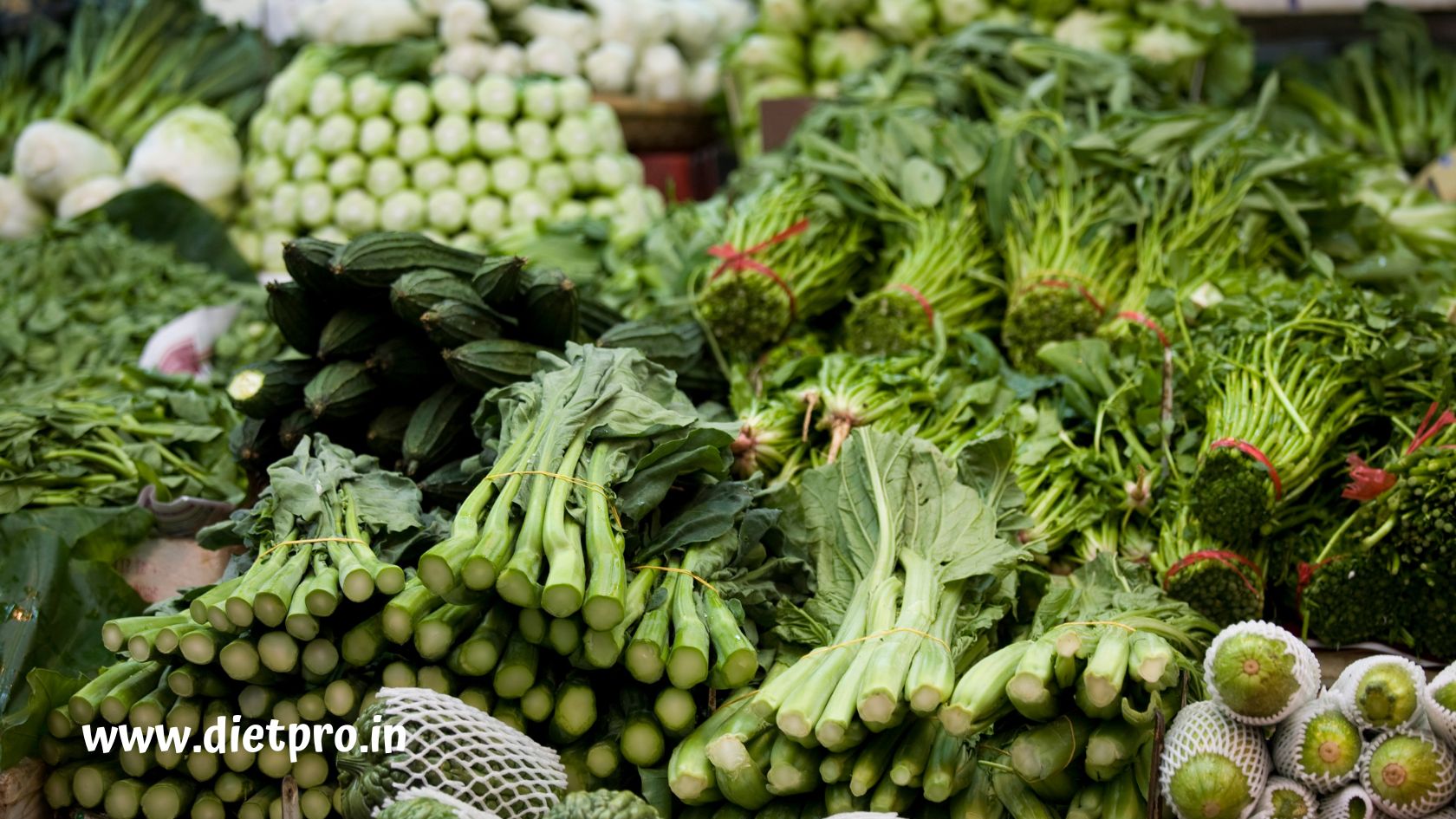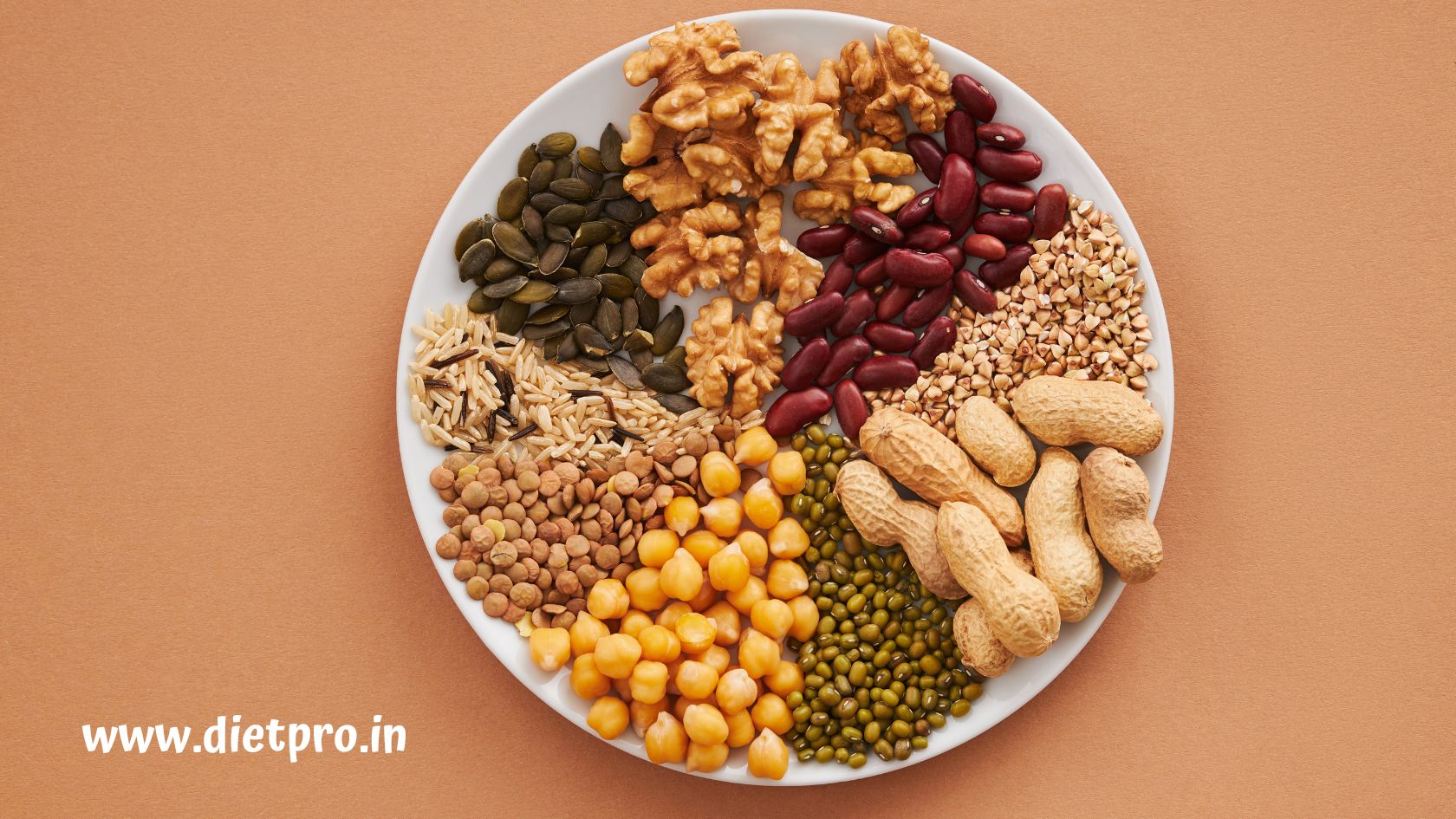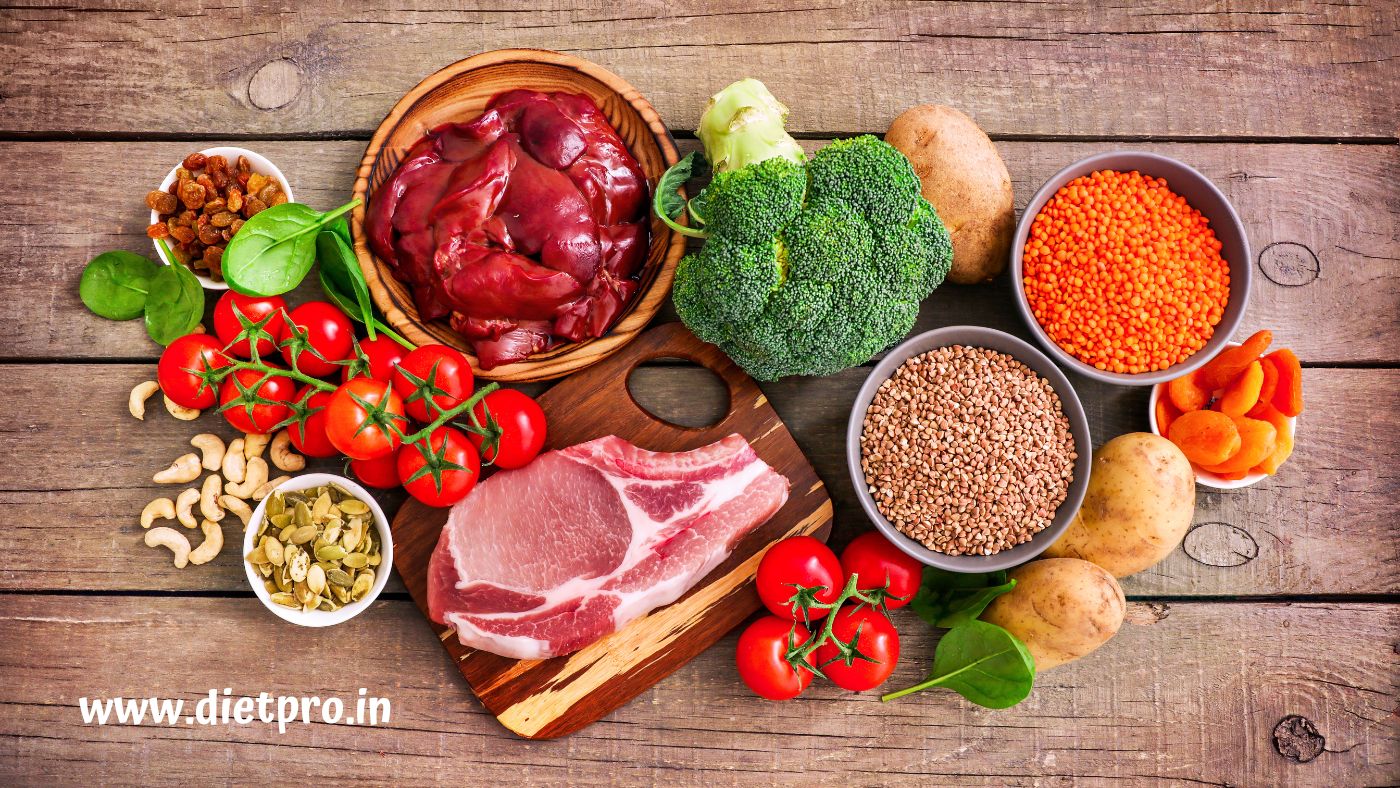Human health is dependent on the intake of specific vitamins and minerals. Iron is one of these essential minerals. In this article, we shall learn the importance of Iron Rich Foods Vegetarian Indian diet plan. Apart from this, we will also provide a list of top iron-rich foods. So, let’s get closer to a healthy life!
Consuming iron is a must because it’s a fundamental component of hemoglobin. Iron-rich food items help maintain our overall health and well-being. If we cut iron from our daily diet, the human body would become weak. How? Because iron is responsible for producing healthy red blood cells. Did you know that diseases like anemia, fatigue, and weakness are all caused because of low iron consumption? Yes, this is a fact.
Importance of Iron in the Diet
Iron is a mineral that is very much needed for several bodily functions. The primary need for iron in the human body is to transport oxygen in the blood. Our body can produce energy with the help of iron. It also helps in proper brain functioning and a robust immune system.
Iron Rich Foods Vegetarian Indian
Let’s talk about vegetarians – for them, obtaining sufficient iron is a challenging task. It’s because they don’t consume heme iron. Heme iron is found only in animal products. Moreover, the human body absorbs iron from animal sources more easily than plants.
Read More :- 1500 Calorie Indian Diet Plan for Faster Weight Loss
Read More :- 1800-Calorie Low-Carb Meal Plan
Read More :- Foods That Lighten Skin
So, what’s the solution for vegetarians? Well, including iron-rich foods in a vegetarian Diet Plan is the answer. Vegetarians can meet their nutritional needs by consuming dark, leafy green vegetables, lentils, whole grains, peas, dried beans, etc. All of these food items can help them acquire and enjoy vibrant health.
Top Iron-Rich Vegetarian Foods
Below, we have jotted down the list of plant-based foods high in iron. Have a look:
1. Leafy greens
One of the best sources of non-heme iron is leafy greens. Examples of leafy greens include spinach, kale, cabbage, arugula, watercress, and romaine lettuce. These vegetables are versatile. These items are rich in essential vitamins and minerals that support overall health. You can use leafy greens in various dishes, like smoothies, salads, stir-fries, etc. Vegetarians can pair them with vitamin C-rich foods for better iron absorption.

2. Nuts and seeds
Iron-rich foods vegetarian Diet Plan must include nuts and seeds. Pumpkin seeds, cashews, flaxseeds, almonds, walnuts, sesame seeds, sunflower seeds, and cashew nuts are some of the best examples of nuts and seeds. They are a rich source of iron and healthy fats. Also, these nuts contain vital nutrients like magnesium, which are beneficial for bone health. You can intake nuts and seeds as a convenient snack option. Another way of consuming nuts and seeds is to sprinkle them on salads, yogurt, or oatmeal.

3. Legumes
Legumes are a treasure trove of iron. Hence, vegetarians need to include this in their diet plan. Examples of legumes include lentils, chickpeas, Anasazi beans, peanuts, and sprouts. Not only are they versatile and delicious, but they also have innumerable health benefits. E.g., legumes are packed with protein, fiber, and iron. To consume it, try making soups, stews, curries, or salads – and a tasty + healthy diet is on your table.
4. Whole grains
Whole grains are grains that are not refined. So, consuming whole grains can boost nutrition in the diet. Whole grains include quinoa, fortified cereals, oats, brown rice, wheat, rye, barley, and buckwheat. If you are a vegetarian, ensure that you intake whole grains, as they provide iron and essential carbohydrates for energy. The best way to incorporate whole grains into your diet is grain bowls or salads.
The role of vitamin C in iron absorption
The role of vitamin C in iron absorption is significant because it enhances the body’s ability to absorb non-heme iron, which is the type of iron found in plant-based foods and iron supplements. Vitamin C, also known as ascorbic acid, acts as a facilitator in this process through several mechanisms:
- Reduction of Ferric Iron to Ferrous Iron: Non-heme iron in plant-based foods is predominantly in the ferric form (Fe3+), which is not as easily absorbed by the body as the ferrous form (Fe2+). Vitamin C helps convert ferric iron into ferrous iron, making it more bioavailable for absorption in the small intestine.
- Chelation: Vitamin C forms complexes with non-heme iron, creating a chelate. This chelate is more soluble and stable, preventing the formation of insoluble compounds that can inhibit iron absorption. By keeping iron in a soluble and bioavailable state, vitamin C ensures more efficient absorption.
- Improved Uptake: Vitamin C increases the absorption of non-heme iron by enhancing the uptake of iron by enterocytes, the cells in the small intestine responsible for nutrient absorption. This results in a higher percentage of iron being absorbed into the bloodstream.
- Protection from Inhibitors: In the same way that vitamin C enhances iron absorption, it can also counteract substances that inhibit iron absorption, such as phytates and polyphenols found in certain plant foods. By mitigating the inhibitory effects, vitamin C can help counterbalance potential reductions in iron absorption caused by these compounds.
- Promotion of Non-Heme Iron Sources: Vitamin C-rich foods, like citrus fruits and certain vegetables, are often good sources of non-heme iron as well. So, including these foods in your diet not only provides the iron but also the vitamin C needed for optimal absorption.

Incorporating vitamin C-rich foods into meals that contain non-heme iron sources is a simple and effective strategy to improve iron absorption, especially for individuals following a vegetarian or vegan diet. For example, you can pair a spinach salad (a non-heme iron source) with a citrus fruit vinaigrette to enhance the absorption of the iron in the spinach. By doing so, you can ensure you meet your iron needs more effectively and maintain good overall health. Iron Rich Foods Vegetarian Indian.
Conclusion
In conclusion, iron is a vital nutrient for vegetarians. Iron rich foods vegetarian Diet Plan is a must as it’s a well-thought-out meal plan. It’s time to shift to healthy eating habits because ‘health is wealth’! So, remember to embrace leafy greens, legumes, nuts, seeds, and whole grains to make your diet delicious and nutrient-rich.
